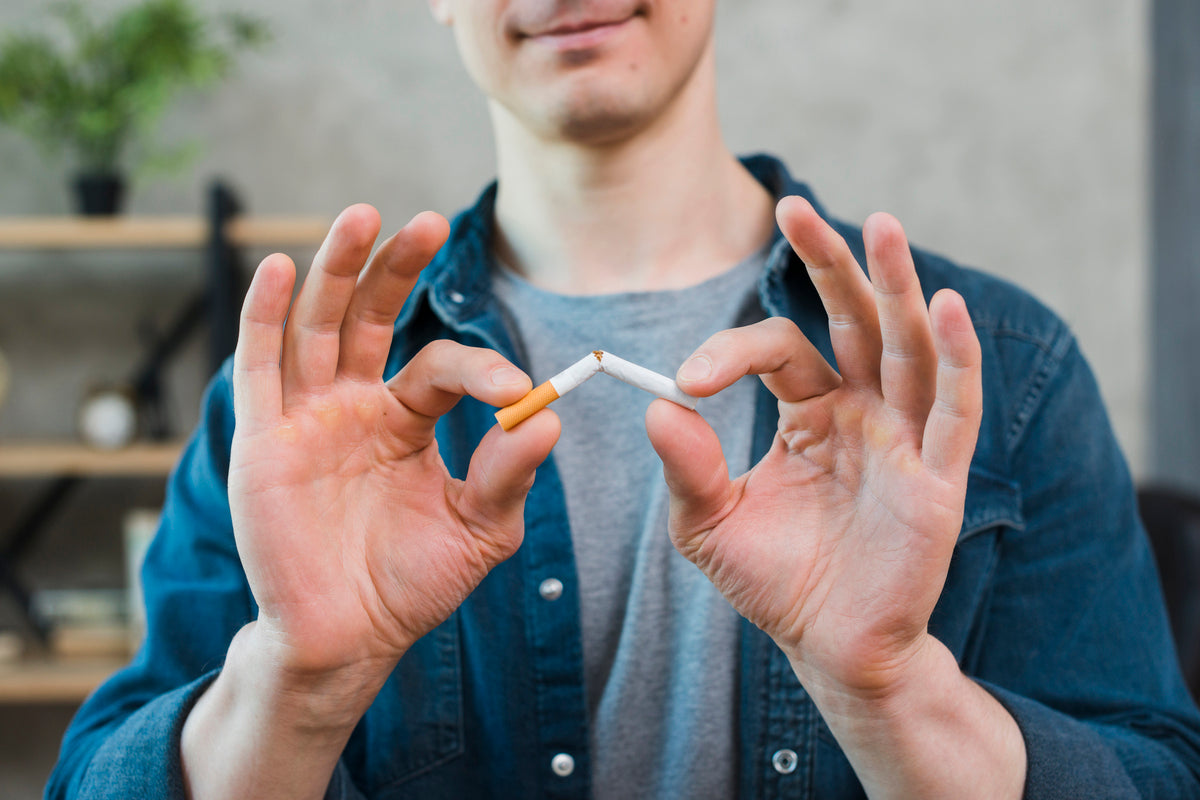How To Clean Your Lungs After Smoking

One of the significant hurdles between you and reaching your peak physical performance is one unhealthy habit that the media have glorified. Smoking, more than alcohol or improper diet, hurts almost all systems. Health issues can occur in the liver, lungs, throat, and mouth. However, nearly 80% of people never reach that point. The reason can be quitting or early heart failure due to blockages in your arteries. While there has been long research on how cigarettes cause cancer, there is less on how to reel out the damage done by it. Cigarette smoking harms the body by increasing one substance- mucus.
Mucus is the fluid in your lungs, between your digestive organs, and even under your skin. Mucous is a balancing fluid that keeps foreign material from entering your essential tissues. Smoking is one habit that pushes more than ten foreign chemical substances, apart from nicotine, into your system. This increases the amount of mucous in the lungs and digestive system. This creates an imbalance in the body's fluid system consisting of Vata, Pitta, and Kapha. It changes your physiological, mental, and emotional well-being. Smoking makes you tired, mentally exhausted, and emotionally enraged. Hence, even after quitting, you need to detox your body from its substances. This is the list of remedies for lung detox after quitting smoking-
Tip #1 Steam Therapy
Steam is known to bring out retained fluids in the body. When hot water molecules get absorbed in the body, internally or externally, it loosens excessive and thick fluid like water retaining fat or mucus. Hence, breathing in steam boosts the clearing out of mucus. Taking steam is easy; all you have to do is take a big-sized vessel and boil water with a half-full amount.
Take a thick cloth like a big towel or a bed sheet. Cover yourself with the fabric, put your face over the open pan, inhale deep into your lungs, and exhale out of your mouth. Do it at least thrice before removing the cloth for a breath. Continue with it till the water stops releasing steam. You can add a camphor crystal to the water right before inhaling it; it will also help loosen the mucus in your throat and sinuses.
Tip #2 Controlled Coughing
Detox of the lungs happens naturally when you cough. If you feel a lot of loose mucus in your lungs, try coughing it out controlled. Coughing pushes the mucus through the airways, and you can spit it out. Inducing a cough requires no drug or machine. Sit on a chair with your feet flat on the ground. Keeping your back and shoulders relaxed, hold your belly with your arms. Inhale deep and then exhale while forcing the air out of your lungs by squeezing your belly. When exhaling for the third or fourth time, try coughing out. Soon enough, you'll get controlled coughing, right?
Tip #3 Draining mucus
Mucus is practically fluid, and it moves the same way any fluid moves with the force of gravity. You can quickly drain mucus from your lungs by laying in positions that force mucus upwards through the air passages. For this, you must lie where your lungs are upside down so the phlegm can flow through your nose and mouth. Here are the ways to do postural mucus-draining exercises-
1. On the back
- Lie down on the floor
- Place a pillow under your hips so that your hips the higher than your lungs
- Inhale slowly through the nose and exhale even slower from the mouth (if you inhale for 4 seconds, exhale for 8)
- Continue for at least 10 minutes
2. On the side
- Lie down sideways with a pillow between your neck and shoulder
- Place a pillow or two under your hip to elevate it from your torso
- Follow the same 1:2 breathing pattern
- Switch sides after 10 minutes and continue on the other side
3. On the stomach
- Lie down on your stomach.
- Place a pillow under your belly, keeping the hips raised.
- Place arms under the head for support and continue the 1:2 breathing.
- Continue for at least 10 minutes.
Tip #4 Exercise
Doing exercises that challenge the lungs and heart can be beneficial for lung detox after quitting smoking. Cardio exercises like running, swimming, and cycling can benefit your lungs. They help the lungs move faster, which loosens the mucus. This helps with controlled coughing to push out the mucus. Exercising also helps by gradually declining the production of carbon dioxide in the muscles so that the lungs need not work harder to take in more oxygen for the body.
Tip #5 Anti-inflammatory and lung conditioning herbs
There are certain herbs and fruits in nature that help in relieving inflammation. A large part of the mucus formed in the lungs is because of inflammation caused by breathing in pollutants or cigarette smoke. These anti-inflammatory herbs help in relieving inflammation and reducing phlegm in the lungs-
- Turmeric- reduces inflammation and eliminates pathogens.
- Tulsi- soothes the lungs from inflammation and opens up airways.
- Mulethi or licorice has glycyrrhizin, relieving airway inflammation and letting the lungs breathe easily.
- Grape seed reduces airway inflammation, heals air pathways to alleviate heavy breathing, and has procyanidin, which prevents lung cancers.
- Trikatu- rejuvenates the lungs by clearing mucus from the lung tissues.
All of these herbs can be on your lung detox list with herbal capsules for lung detox. Qraamen Lung Detox Capsules have essential extracts from Turmeric, Tulsi, Mulethi, Grape Seed, and Trikatu. Its anti-inflammatory and lung cleansing properties help you with lung detox after quitting smoking.
Industrial smoking tobacco comes with nicotine in small dosages, and many industrial chemicals are used to process tobacco plants and manufacture cigarettes. Quitting it all together will improve your quality of life and keep your endurance high.